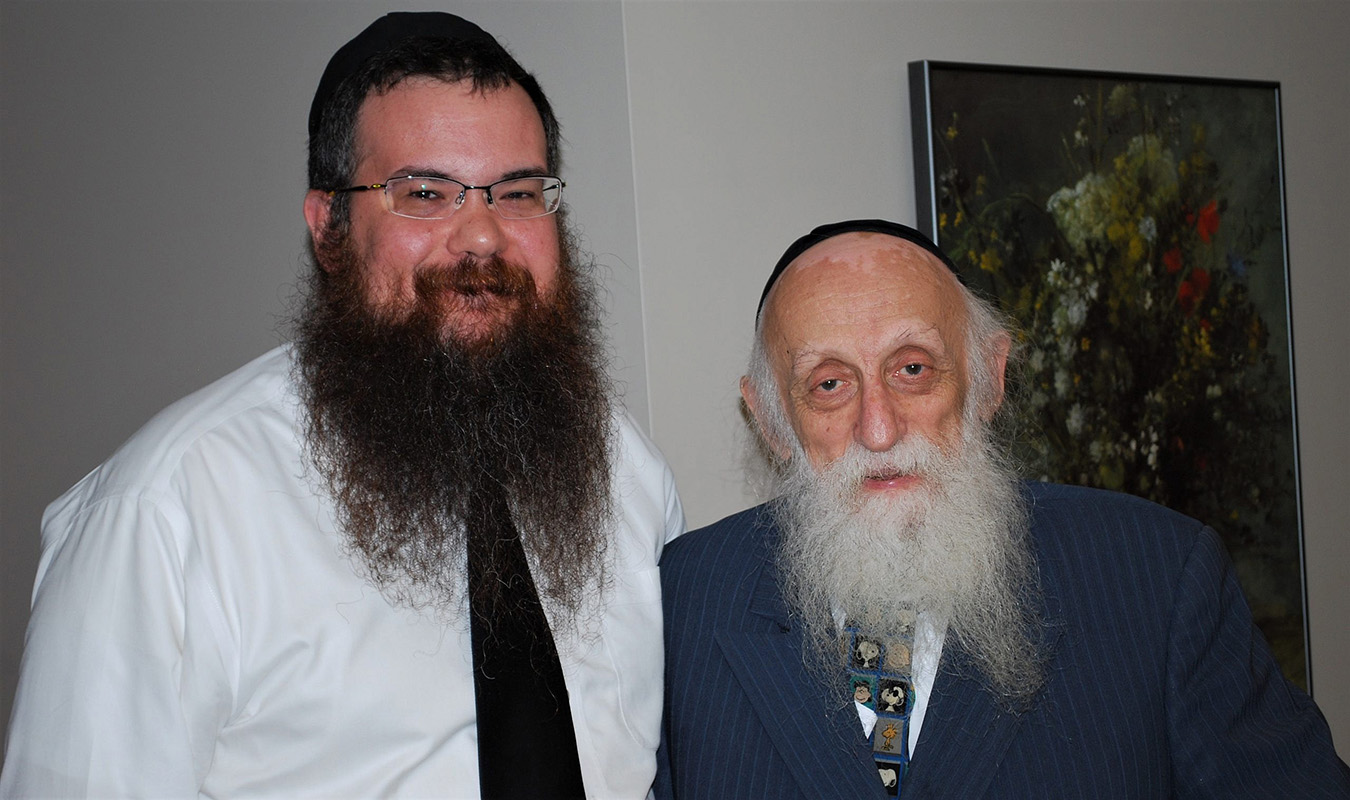I first discovered the writing of Rabbi Abraham J. Twerski, who passed away this week at age 90, as a beginning rabbinical student. His spiritual and Hasidic writings gave emotional lift to my classes on Jewish law.
My late father-in-law, a psychotherapist, introduced me to some of his psychological writings, which were written expanding the lessons of Peanuts comic strips. When my late brother was in the throes of an opioid addiction, I discovered Rabbi Twerski’s writings on addiction and recovery. For most of my 20s and 30s, Rabbi Twerski’s writing were a compass. They were profound and simple without being simplistic.
Rabbi Twerski, of blessed memory, was the inheritor of multiple Hasidic dynasties. He also was a psychiatrist who directed a recovery center and a department of psychiatry. His 60-plus books are on Jewish subjects, mental health, and addiction – and sometimes he intermingles these subjects.
In the Jewish community, we often hide difficulties with social stigma, such as addiction, mental illness, and domestic violence. Rabbi Twerski’s voice allowed these subjects to be spoken aloud safely.
As a young associate rabbi at a Conservative synagogue in Dallas, I worked with an inspiring group of women preventing domestic violence. The group was called Shalom Bayit. The phrase Shalom Bayit, “peace in the home,” has a history of being used to instruct wives to return to abusive husbands. This multi-denominational group reclaimed the phrase Shalom Bayit by protecting the abused and not the abuser.
Shalom Bayit planned a luncheon in 2007 with Rabbi Twerski as the featured speaker. He was very busy and getting older. He wasn’t traveling much any more, but on this subject, he felt it necessary to fly from Pittsburgh to Dallas to speak. By that time, my brother had passed away from his addiction. In his memory, our community sponsored a second lecture by Rabbi Twerski at the Jewish high school in Dallas on combating addiction. The local Orthodox Kollel, in turn, sponsored a third lecture on Jewish prayer.
For the 36 hours that he was in Dallas, I observed how he interacted with all three groups. It is rare to see a Tzadik – a righteous person – in action and up close. Rabbi Twerski embodied the teaching from Proverbs 22:6: “Educate a youth according to his way, and when he is old, he will not turn away from it.” With each group, Rabbi Twerski listened intently to every person, he had profound insights, and taught without one note in front of him. However, in each setting he effortlessly presented himself in a totally different manner with a completely different vocabulary. As the Book of Proverbs teaches, he taught in the manner appropriate for each different audience.
In the banquet hall where Shalom Bayit had its luncheon, there were hundreds of women (and a few dozen men) in attendance. Rabbi Twerski spoke with the erudition of the medical director that he was in Pittsburgh. He admonished community leaders who did not prevent abuse in Jewish homes and inspired us to make our community safe from abuse.
At Yavneh Academy, Dallas’ Jewish high school, Rabbi Twerski arrived wearing his black hat, a rebbe’s dark suit, and his white beard. However, he made sure to have the most natural smile and a tie with Peanuts characters. He spoke about his friendship with the famed cartoonist, Charles Schultz (“Sparky” as Rabbi Twerski knew him). When he spoke with the teens, he did not use one medical term, one Hebrew word, nor one Yiddishism. He taught about the source of true self-confidence (which is the best antidote against substance abuse). He said: “You are too good to let yourselves be damaged.” How deeply did I pray for that message to be absorbed by every teen in the room.
His final lecture, for the orthodox Kollel group, Rabbi Twerski spoke in the cadence of the Hasidic rebbe. That evening, his language was peppered with Yiddish, with Yeshiva-like cadences, and references to Torah and Talmud. His topic that evening was ostensibly on prayer. His examples, though, were religious lessons he learned from his drug-addicted patients. It was revelatory to hear him teach other rabbis what we can learn about spirituality from addicts in recovery.
That evening, Rabbi Twerski taught us that the three phrases that occur most in Jewish prayer are “I love you,” “I’m sorry,” and “Thank you.” These phrases are said three times a day to God in order to practice saying them to one another. How many relationships, Rabbi Twerski asked, could be saved if we only said those three phrases with intention to our children, our spouses or our friends?
Rabbi Twerski chose the road of seeing the potential in every human life both in the rabbi’s office and the medical facility. I am sure that many of his patients didn’t know of his Hasidic writings. I am sure that many of his religious followers did not know how he treated addicts.
Rabbi Twerski saw the essence of every person he encountered. He could move effortlessly from a Hasidic study hall, to a medical director’s office, to engagement with every kind of Jewish person. With his passing, we must carry this mantle to embrace each other’s humanity and help in the struggle and change we each need in our own lives.
Rabbi David M. Glickman has been the senior rabbi of Congregation Beth Shalom in Overland Park, Kansas since 2012. From 2001-2012 he served as Associate Rabbi at Congregation Shearith Israel in Dallas, Texas.



